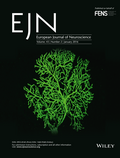Too Much Sugar During Adolescence May Alter Brain’s Reward Circuits
20 January 2016
Society & Partner News
20 January, 2016 in Societies & Partner News
The study shows that the enjoyment of such foods later in adulthood is reduced in those who over-consumed early in life. Investigators found that this decrease in reward relates to reduced activity in one of the key hubs of the brain’s reward circuitry, called the nucleus accumbens. Such long-lasting alterations could have important implications for reward-related disorders such as substance abuse or eating disorders.
“In spite of the dramatic increase in the consumption of sweet palatable foods during adolescence in our modern societies, the long-term consequences of such exposure on brain reward processing remain poorly understood,” said Dr. Martine Cador, senior author of the European Journal of Neuroscience study.
To access the full press release, please click here.
To access PDFs you must be logged in – FENS members can benefit from free access. Request a login here.
